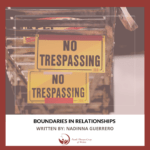
Grieving mom on Mother’s Day
Written by. Dr. Dagmar Nunez
It’s Mother’s Day. It’s that time of the year again when we show love and appreciation to our mothers and mother figures. We say thank you, and give her gifts and flowers, while others make her breakfast in bed or take her to her favorite restaurant. We want to make her feel special. But this is not true for everyone. Some people might choose not to celebrate Mother’s Day, for many reasons, such as beliefs, cultural differences, having a difficult relationship with their mother, or because their mother/mother figure has already passed.
Dealing with Mother’s Day when you are grieving the loss of your own mother, can be a difficult emotional experience regardless of age.
As a child dealing with the loss of their mother can be difficult as they may not fully understand or may feel confused, and scared and struggle with expressing their feelings. For an adult, even though there could be a better understanding of death, it doesn’t mean that it could be easier to grieve. The relationship history is more complex, there are more memories, and experiences to process.
Mother’s Day can be particularly difficult, due to mixed emotions and feelings of sadness, anger, and guilt. Some people may feel disconnected or isolated. Some may feel withdrawn and do not enjoy participating in Mother’s Day social gatherings and celebrations. Some may feel they must put on a brave face and act like they are ok, even when they struggle with grief. While others may feel like they are stuck in the past, unable to move on from their grief. The process of loss is different for everyone.
There is no one-size-fits-all approach to dealing with your feelings of grief on Mother’s Day.
However, here are some recommendations to help you process your feelings honor, and remember your mother on this Mother’s Day.
1. Acknowledge your feelings:
Feeling sad, angry, or overwhelmed is okay. Give yourself permission to feel your emotions.
2. Make a plan:
Decide how you want to spend the day. You might want to visit your mother’s grave, see her pictures on her social media page (Facebook), go through her photographs, or do something that she enjoyed. You can also take time for self-care and relax by yourself or with loved ones.
3. Write a letter to your mother:
This can help sort through and relieve strong emotions, keep memories alive, and bring closure by putting your thoughts into words.
4. Light a candle:
You can light a candle in memory of your mother, in your own home, or at a special place that holds meaning for both of you.
5. Create a memorial:
Consider creating a memorial for your mother, such as a scrapbook or a memory box filled with special and meaningful items to remember and honor her.
6. Seek professional help:
If you are having difficulties coping with grief and mixed emotions, consider seeking the support of a therapist or counselor to help you process your emotions and develop coping strategies.
Remember, there is no right or wrong way to go through Mother’s Day. Everyone experiences loss differently. Regardless of what you choose to do on Mother’s Day, know that acknowledging and honoring your feelings is a form of good mental health.
Written by Dr. Dagmar Nuñez, Psy.D.

From Dr. Nuñez's bio...
“Being a mother with all its joys and tears, a stepmother of two who lost their mother, a spouse with all that it entails, growing her career, financial issues, and the grief of losing my mother to suicide. I just want you to know that I understand where you are now. Which allows me, not only guide you with my expertise, but help you walk your unique journey. I look forward to working with you”






